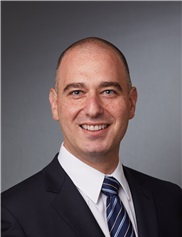Grants Funded
Grant applicants for the 2024 cycle requested a total of nearly $3 million dollars. The PSF Study Section Subcommittees of Basic & Translational Research and Clinical Research evaluated more than 100 grant applications on the following topics:

The PSF awarded research grants totaling over $650,000 dollars to support more than 20 plastic surgery research proposals.
ASPS/PSF leadership is committed to continuing to provide high levels of investigator-initiated research support to ensure that plastic surgeons have the needed research resources to be pioneers and innovators in advancing the practice of medicine.
Research Abstracts
Search The PSF database to have easy access to full-text grant abstracts from past PSF-funded research projects 2003 to present. All abstracts are the work of the Principal Investigators and were retrieved from their PSF grant applications. Several different filters may be applied to locate abstracts specific to a particular focus area or PSF funding mechanism.
Adipose Derived Stem Cells Augment Lymphatic Regeneration
Tomer Avraham MD
2009
Memorial Sloan-Kettering Cancer Center
Research Fellowship
Breast (Cosmetic / Reconstructive), Wounds / Scar
Lymphedema is a chronic, debilitating condition that reconstructive surgeons frequently encounter in patients treated for breast cancer. There is no cure, and only limited treatment options. Lymphedema results from inadequate repair of lymphatic vessels following surgery. The literature as well as our own preliminary data have implicated the balance of pro and anti-lymphangiogenic growth factors in the modulation of lymphatic regeneration. Local stem cells have been implicated as sources of important growth factors in wound healing and angiogenesis. Transplanation of adipose derived stem cells (ADSCs) has been shown to improve wound healing and angiogenesis. Further, we have shown that radiation, a major risk factor for the development of post-operative lymphedema, causes local stem cell dysfunction. We therefore hypothesize that lymphatic regeneration following wounding is dependent on a balance of pro and anti-lymphangiogenic factors and that this balance is in part mediated by resident stem cells. We will test our hypothesis using two specific aims. Specific Aim 1: To determine the efficacy of ADSCs in preventing lymphedema and Specific Aim 2: To determine the efficacy of ADSCs in treating established lymphedema. Our experimental approach will be to use a mouse tail model of surgical lymphedema. ADSCs will be transplanted at the time of surgery to prevent lymphedema, or once lymphedema has been established, in order to treat it. We believe that ADSCs will improve lymphatic regeneration by altering the molecular balance of the wound in favor of pro-lymphangiogenic factors. Lymphatic regeneration and function will be evaluated at various time points. The use of ADSCs in the prevention and treatment of lymphedema is a pealing because of the safety and ease of the technique. This study could also potentially guide options for types and timing of breast reconstruction in breast cancer patients.
 Dr. Avraham graduated Cum Laude with a B.S. in Biology and a minor in History from Tufts University. He then completed his medical training at Tufts University School of Medicine with AOA honors. Following medical school, Dr. Avraham started a General Surgery residency at NYU medical center in New York. At the completion of his second clinical year he joined Dr. Mehrara’s lab at Memorial-Sloan Kettering Cancer Center (MSKCC) in New York. Dr. Avraham is currently starting his 3rd year in Dr. Mehrara’s lab studying lymphatic endothelial biology with a goal of developing novel methods to treat or prevent lymphedema. He is currently the Chief Administrative Research Fellow for the Department of Surgery at MSKCC.
Dr. Avraham graduated Cum Laude with a B.S. in Biology and a minor in History from Tufts University. He then completed his medical training at Tufts University School of Medicine with AOA honors. Following medical school, Dr. Avraham started a General Surgery residency at NYU medical center in New York. At the completion of his second clinical year he joined Dr. Mehrara’s lab at Memorial-Sloan Kettering Cancer Center (MSKCC) in New York. Dr. Avraham is currently starting his 3rd year in Dr. Mehrara’s lab studying lymphatic endothelial biology with a goal of developing novel methods to treat or prevent lymphedema. He is currently the Chief Administrative Research Fellow for the Department of Surgery at MSKCC.